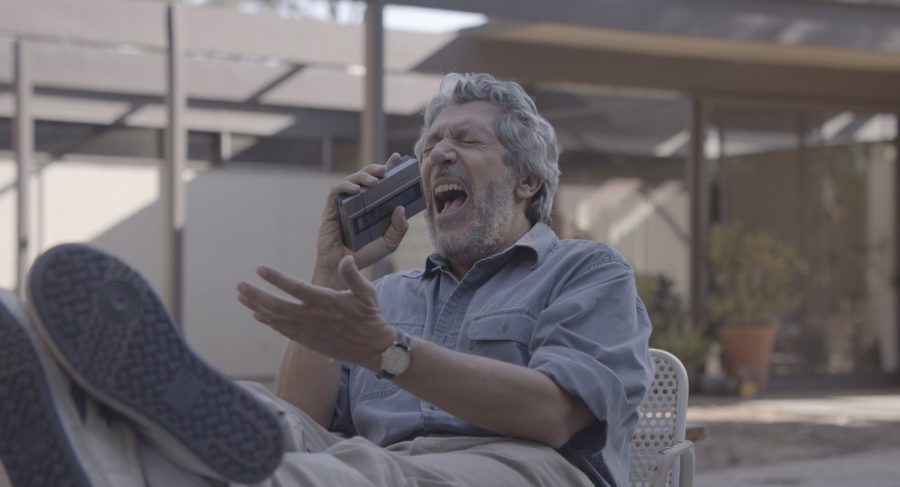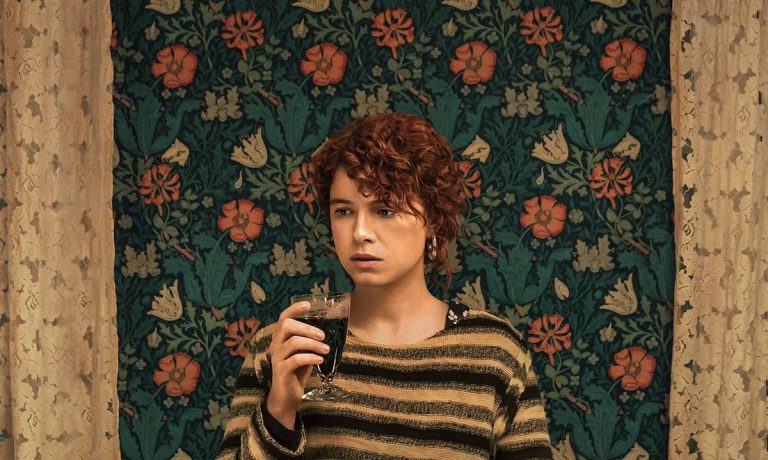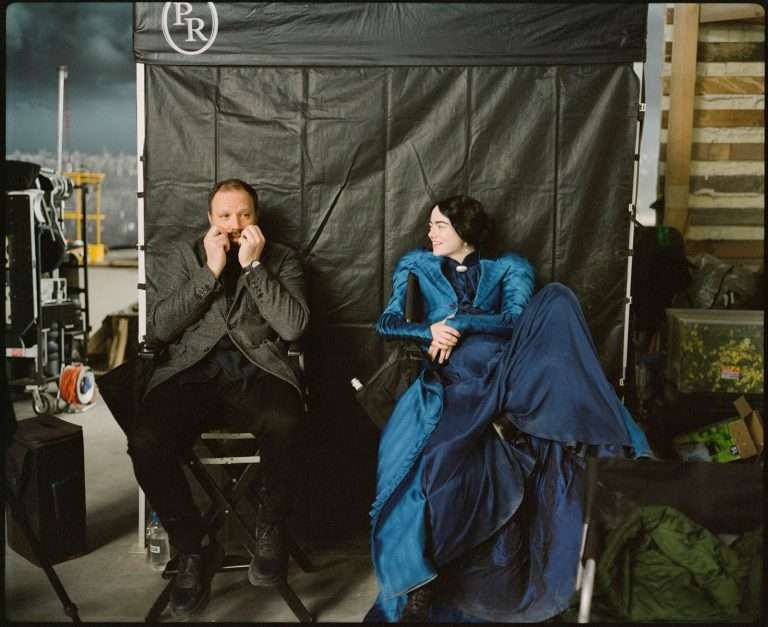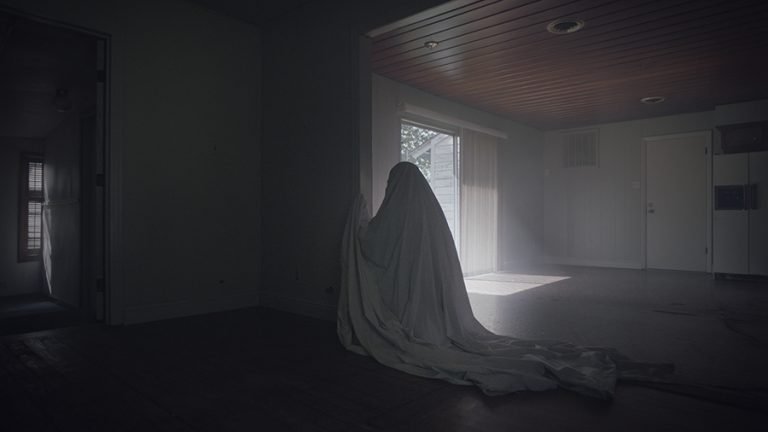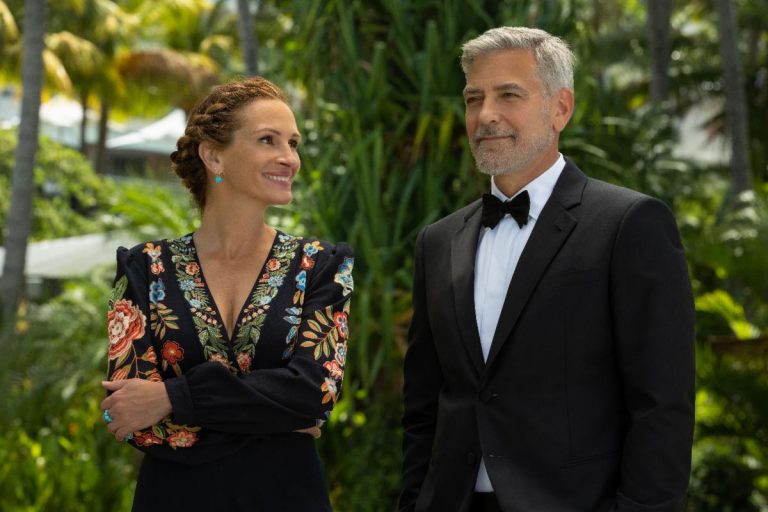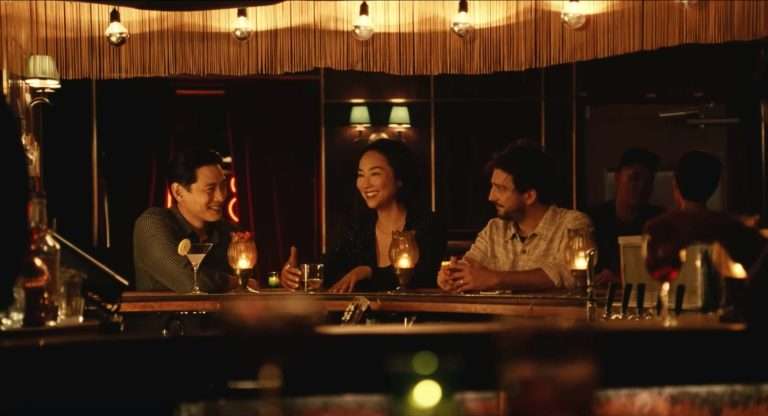Quentin Dupieux is steadily carving a cult niche for himself as a master of the weird and bizarre and Reality (Réalité) (2015), further cementing his reputation as an audacious storyteller unafraid to push the boundaries of conventional cinema.
Reality (2015) begins as a collection of strange, multi-layered narratives that, at first glance, seem unrelated. However, as the film progresses, these seemingly disparate stories start to intertwine, creating a surreal tapestry where events bleed into each other as if part of a singular, twisted reality. Watching Reality reminded me of the bewilderment I felt when I first encountered David Lynch’s Mulholland Drive. In fact, Réalité feels like the offspring of a tryst between Mulholland Drive and Primer, born out of a love for the mysterious and the mind-bending.
There are films that toy with your mind, and then there’s Réalité. I approached this film with some trepidation, unsure of what to expect and hesitant for reasons I couldn’t quite articulate. But after finally giving it a chance, I found myself thoroughly engrossed, even if I didn’t entirely grasp what was happening. Reality is a perplexing, surreal experience that leaves you scratching your head by the end, but in a way that’s oddly satisfying. Dupieux seems to revel in the confusion he sows, caring little for whether the audience can untangle the dense web of parallel narratives. And honestly, it feels like Dupieux never intended for anyone to fully penetrate this intricate labyrinth of a story.
To give you a taste of what you’re in for, here’s a spoiler-free peek into the narrative. The film follows Jason (Alain Chabat), a French cameraman working on a cooking show hosted by Dennis (Jon Heder), who spends his time on screen dressed in a rat suit and scratching himself incessantly. Jason harbors dreams of making a movie and pitches a bizarre sci-fi concept to a prominent producer, Bob Marshall (Jonathan Lambert). Bob agrees to finance the film on one condition: Jason must find the perfect “groan” to feature in the movie. Meanwhile, another thread introduces us to a young girl named Réalité, who becomes obsessed with a mysterious videotape she discovers entangled in the entrails of a wild boar her father is gutting.
The first half of Réalité is dedicated to setting up these peculiar threads, each more confounding than the last, yet they’re irresistibly intriguing. You’re constantly wondering what on earth could possibly happen next. As the film moves into its second half, things only get weirder and more unsettling. Dupieux, who also edited the film, ensures that the subplots become so chaotically intertwined that they defy any logical explanation, leading to a conclusion that’s as enigmatic as the journey. Despite the bewildering nature of the film, you’ll find yourself entertained by its deadpan humor and the subtle satire that Dupieux weaves in with a deft hand.
Quentin Dupieux is steadily building a cult following, and Reality only adds to his mystique. His fans may soon find themselves swearing by his name, as his unique brand of storytelling continues to captivate and confound in equal measure.
Also, Read: Yannick (2023) ‘IFFI’ Movie Review
Reality (2015) Theme Explained
Quentin Dupieux is a filmmaker who loves to challenge the audience’s understanding of what’s real, and Reality (Réalité) is one of his most daring films yet. If you’ve watched it and found yourself confused or wondering what it all meant, you’re not alone. Reality is designed to be complex and mysterious, inviting viewers to explore its layers without necessarily finding all the answers. Let’s break down what makes this film so intriguing.
The Puzzle-Like Story
Reality is more than just a movie—it’s like a puzzle that doesn’t have a single solution. The film begins with several seemingly unrelated stories. We meet Jason, a French cameraman who dreams of making his own movie. He pitches a strange sci-fi idea to a producer named Bob Marshall, who agrees to fund the project—but only if Jason can find the perfect “groan” for the film. This odd task sends Jason on a journey where the lines between reality and fiction blur, leaving both him and the audience questioning what’s real.
At the same time, there’s a young girl named Réalité, who discovers a mysterious videotape inside a wild boar. Her fascination with the tape pulls her into a bizarre adventure that somehow connects with Jason’s story in ways that are hard to explain but impossible to ignore.
Interconnected Realities
One of the most interesting things about Reality is how its different storylines connect with each other. The film plays with time, space, and logic, making it hard to tell where one story ends and another begins. Characters from one storyline might appear in another, dreams merge with reality, and the narrative circles back on itself like an endless loop. This kind of storytelling is a signature of Dupieux’s style, similar to the complex narratives you might find in films like Mulholland Drive or Primer.
But unlike those movies, where there’s usually some hidden logic to discover, Reality seems to enjoy being unclear. Dupieux isn’t interested in giving us straightforward answers—he’s more about the experience of getting lost in the story. It’s as if the film itself is questioning what storytelling is all about, challenging us to accept that sometimes, things just don’t make sense.
The Search for the Perfect Groan
A central theme in Reality is Jason’s search for the perfect “groan” to include in his movie. What seems like a small task becomes a metaphor for the entire film. Just as Jason struggles to find this elusive sound, we as viewers wrestle with understanding the film’s meaning. The groan represents our frustration, confusion, and, ultimately, our acceptance that we might not have all the answers. It’s a clever way for Dupieux to play with our expectations, showing that the journey is more important than the destination.
Blurring Reality and Fiction
At its heart, Reality is about how easily our perceptions of what’s real can be twisted. The film’s title isn’t just referring to a character named Réalité—it’s also about the idea of reality itself. In Dupieux’s world, reality is fluid, constantly shifting, and sometimes more surreal than we’d expect. By the end of the movie, the difference between what’s real and what’s imagined hardly matters anymore.
Humor and Satire
Even though Reality can be mind-bending, it’s also full of humor. Dupieux uses deadpan comedy and subtle satire to keep things light, even when the story gets weird. For example, the character Dennis, who wears a rat suit and scratches himself on a cooking show, adds a touch of absurdity that’s both funny and unsettling. These moments of humor balance out the film’s more confusing elements, reminding us not to take it all too seriously.
Conclusion: Embrace the Mystery
In the end, trying to fully explain Reality might be impossible, and that’s exactly how Dupieux wants it. This is a film that doesn’t offer easy answers, challenging us to enjoy the mystery and the journey itself. Like a dream that fades as soon as you wake up, Reality lingers in your mind, teasing you long after the credits roll. So, if you’re left scratching your head after watching Reality, don’t worry—you’re in good company. And maybe that’s the whole point.
Reality (2015) Cast – Alain Chabat, Jonathan Lambert, Élodie Bouchez
Reality (2015) Links: IMDb, Rotten Tomatoes, Wikipedia, Official Réalité Website

